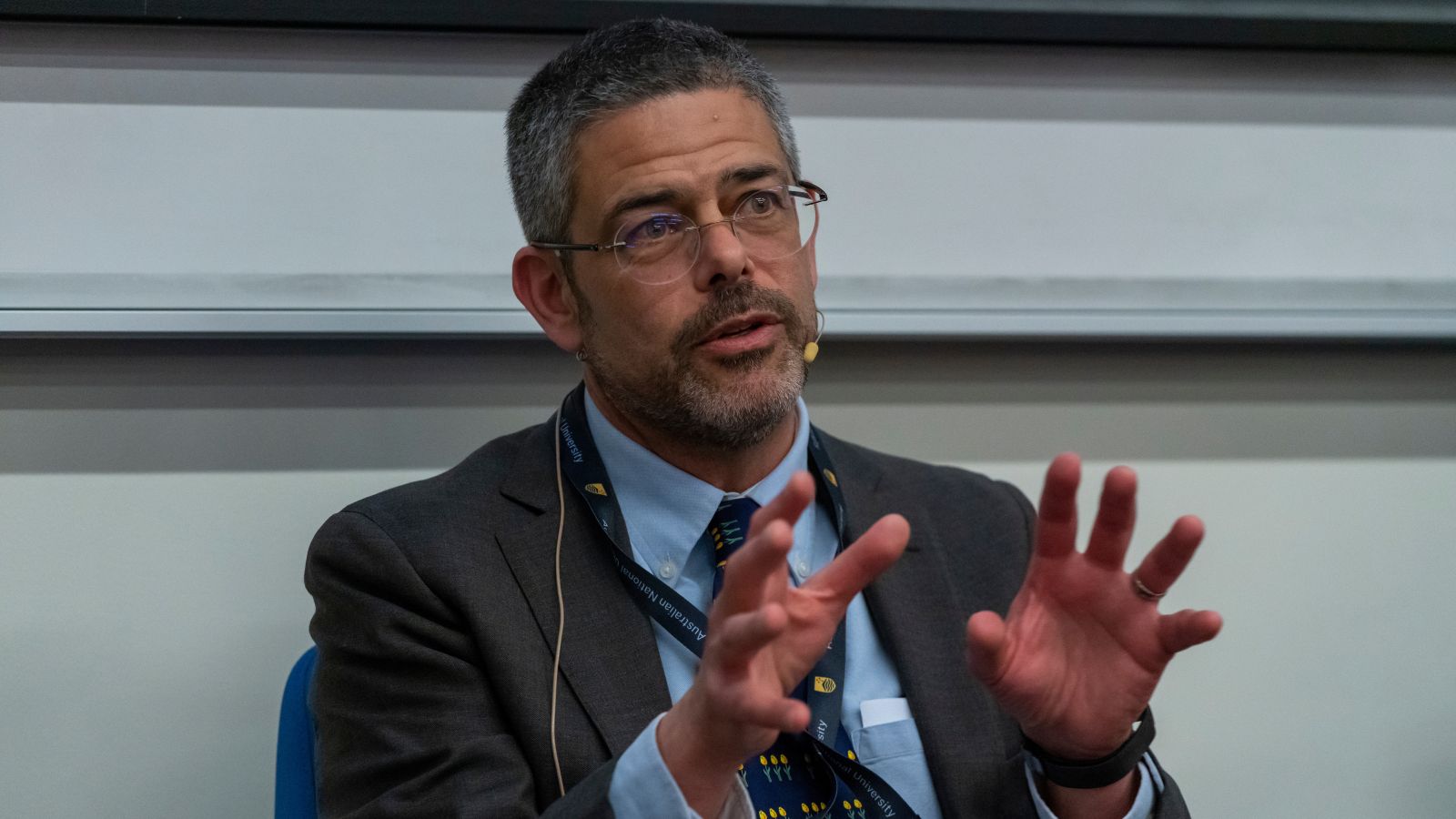Can America remain a superpower with its reputation under fire?

Professor Ben Goldsmith, ANU School of Politics & International Relations
Although America’s public image may be slipping, ANU research shows its power and influence remains unrivalled. For now.
From Hollywood blockbusters to the Super Bowl, the United States has always had a showstopping global presence.
But what happens when the country’s ultimate export— democracy —starts to wobble?
In recent years, the US has grappled with an attack on the Capitol, an increase in voting restrictions, electoral fraud, assassination attempts and a string of other events that have led some experts to label the country as a “ backsliding democracy”.
New ANU research co-led by Professor Ben Goldsmith has revealed the effects of this apparent shift towards authoritarianism on America’s influence and power.
“The main result of our 12-country study is that, while information about America’s democratic backsliding does damage the country’s image among democratic partners, there’s little evidence that this damage enhances the standing of other major democracies like Germany or non-democratic rivals such as Russia and China,” says Goldsmith.
“While democracy is important for America’s global image, it is not clear that the country’s reputation issues will have a practical impact on how publics in allied nations such as Australia, New Zealand or the UK view their country’s international relations with the US.”
Should US allies be worried?
From the AUKUS partnership to the QUAD alliance, Canberra has long been in lockstep with Washington.
But if America’s reign as a global superpower continues, the reputational damage the country has experienced could become harder to ignore.
When the US election was marred by Russian interference in 2016, it posed a direct threat to Australia’s national security. Goldsmith says it’s possible the controversy could be causing Australians to see the so-called ‘land of the free’ in a less flattering light.
“One of our previous studies suggests that successful election interference makes the US look weak and incapable of effective actions, planting seeds of doubt among citizens in allied nations about Washington’s ability to honour its alliance commitments,” he explains.
“Foreign interference or, in broader terms, severe instability in the US could make Australia and other regional allies question whether Americans would come to their aid in the face of a serious challenge from China or North Korea.
“This might undermine the existing alliance system by weakening public support and increasing the openness to compromise with or make concessions to adversaries.”
Soft power, hard truths
“If recent history is a good guide, a second Trump presidency will severely reduce America’s standing among mass publics, while a Harris victory might keep it steady or even boost it,” Goldsmith says.
Soft power will be key in determining whether the 47th US president can restore the country’s languishing reputation.
Coined by political scientist Joseph Nye in the 1990s, ‘soft power’ is the ability to influence others through attraction, rather than coercion or payments.
Nations can project this gentle diplomacy in many ways, including through high-level diplomatic visits, political values, foreign aid and cultural exports such as music and films.
Former prime minister of South Korea, Moon Jae-In, once said that K-pop, K-beauty, K-food and K-content were part of why the world was paying attention to his country’s economic potential.
But pop culture alone isn’t enough to sway international relations, Goldsmith says.
“Countries certainly care about and pay attention to their public images and seem to believe that soft power is a real thing, but the ‘power’ element of it can be exaggerated,” he says.
“BTS, Taylor Swift or the Matildas might be making it easier for their respective countries to pursue real goals in international relations, but I don’t believe we have the evidence to prove it just yet.”
Policy and public opinion
Goldsmith believes that a Trump win could harm the United States’ public image and in turn affect the country’s ability to influence world affairs.
“This damage could end up strongly constraining America’s ability to get things done, even the sorts of things Trump might want to do—like compelling Ukraine to capitulate to Russian aggression in a major way.”
Goldsmith’s research shows that policy preferences and outcomes are the real measure of soft power.
“I believe if Trump struggles to accomplish his foreign policy goals this could be a positive thing for the world,” he says.
“It would also show the importance of soft power in the complex dynamics of international relations.
“There is still a lot we don’t understand well, including the conditions under which positive views of a country affect actual foreign policy preferences.
“That’s why we must continue studying the role of public opinion in international relations.”
By Luis Perez
This article was originally published by ANU Reporter, here.